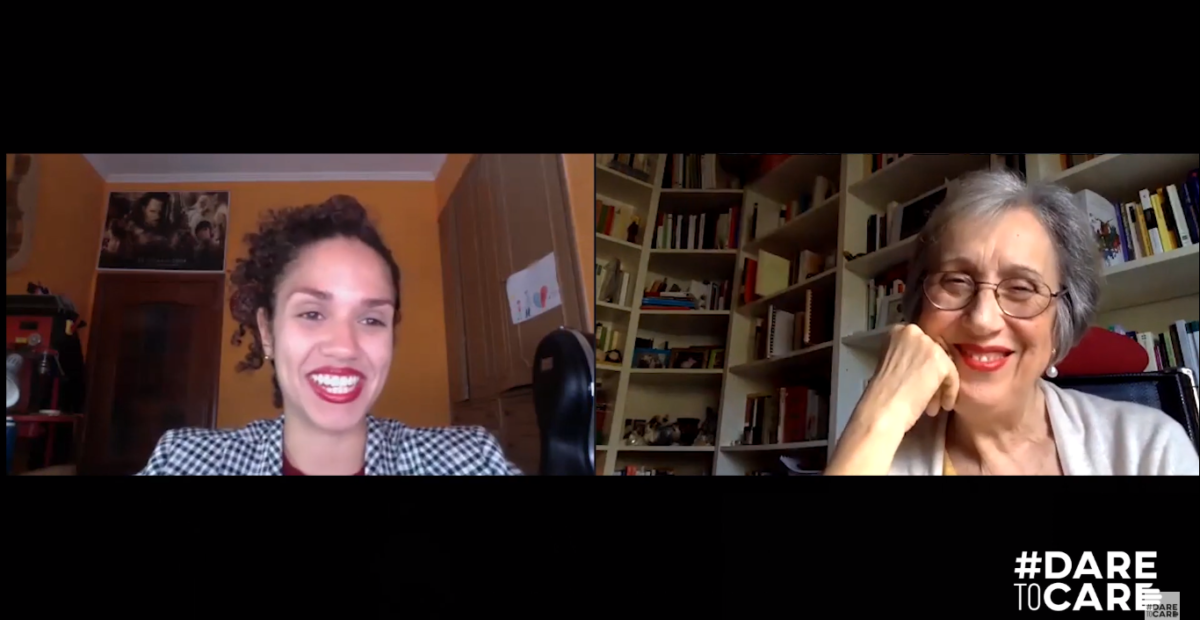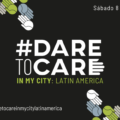
Watch
#daretocare: education for democracy

By Melissa Santos
On the occasion of the #daretocare pathway 2020-2021 launch by United World Project, Melissa Santos interviewed Elena Pulcini, Professor of Social Philosophy at the Department of Philosophy, University of Florence, who wrote the book “La cura del mondo: paura e responsabilità nell’età globale” (“Taking care of the world: fear and responsibility in the global age”)
Transcription of the interview:
MS: Hi everyone, I’m here with Elena Pulcini, a professor of social philosophy at the Department of Philosophy at the University of Florence. Welcome, professor. Thank you for being with us today.
EP: Thank you, I’m happy to be here.
MS: Let’s start. You have dedicated your research to the theme of care for many years. Then came the experience of the pandemic that we are going through. What impact did it have on your vision about care?
EP: It seems to me that an image of care as assistance has emerged above all. Let’s think about all the medical and health care staff we talked about. And this has awakened positive feelings; passions that are somewhat forgotten, such as gratitude, for example, or compassion, or, perhaps more importantly, the feeling of our vulnerability.
And this was very positive because we are in great need of these, right? There is a need to awaken what I call empathic passions. At the same time, though, care remained a little closed within an essentially assistance-related meaning, what in English is called ‘cure’, and not ‘care’. So, I call for care to be above all “care”. This means that care must become a life form.
We must consider it the practical application of the principle of responsibility, that is, what we do from the moment we recognize our responsibility, so it is commitment, practical commitment, it is everyday life and, finally, it is emotive participation, because there is no good care without emotive and affective involvement.
MS: We like to dream of a society in which care is the backbone of local and global political systems. Is it a utopia or is it possible?
EP: So, care means responding to, right? In this case, it relates to the concept of responsibility, to the idea of responsibility, which means realising the existence of the other. From the moment I realise the existence of the other and I’m not locked in my, let’s say, individualism… Well, all this produces things, because, in fact, to realize the existence of the other means to recover a capacity that we have inside us, that is empathy.
Empathy means putting oneself in the other’s shoes, it is a capacity that we have ignored, that we have neglected, but now it is really the time to bring out because it is within us. The question I have asked myself and continue to ask myself is: who is the other these days? I believe that this is an important question at the moment because new figures of the other have been emerging for some time now, at least new figures of what we consider the other to be significant for us. Because everything has changed, everything is changing and we are facing global challenges. So, these days the other is also the different, the other is also the future generations. I would even say that today the other is nature, the environment, the Earth that hosts us.
Therefore, care really becomes the overall response to the great challenges of our time, if we know how to grasp it and if we know how to find it through the empathic capacity of relating to the other. So, I don’t know if it’s really possible, but I think we can’t lose the utopian perspective. I believe that without ideologies, but we must maintain an attitude that is also utopian, and this means that responsibility is not enough, we also need to cultivate hope.
MS: What suggestions would you give us to act in this sense and to orient our societies towards Care, starting with the institutions?
EP: I believe that we must act everywhere where we operate, in order to get care out of the restricted field of the private sphere in which it has been confined for centuries and, as we now know, identified with women, who, however, have been penalised, being closed in the private sphere as well.
So, we need to get care out of the private sphere. I have to think of myself as a caring subject in my family, in my teaching profession, when I meet the marginalized poor in the street or when I go swimming to the beach, I have to care in all dimensions.
It does not mean I have to be a caring subject 24 hours a day, because that would be unbearable. We must not feel forced, but inspired to care and therefore it means adopting care as a life form, that is, something that is really capable of breaking this perverse spiral, this drift of our unlimited individualism, which is leading us to not only the self-destruction of humanity, but to the destruction of the living world. That would be a real shame, let us put it that way.
Therefore, we must try to respond with care to the illnesses of our society. Which means educating democracy. There is a philosopher of the nineteenth century I really like, who is unrivalled in this topic, his name is Alexis de Tocqueville, who said that ‘we must educate democracy’, it is a lesson still to be learned and I believe that this means cultivating one’s own empathetic emotions to be stimulated. To take pleasure in care. Through gratification, not constraint.
MS: Great! Thank you, Professor for your profound answers, and as you see, we are beginning a pathway that can bring us to a new lifestyle and a new cultural orientation to the world. Let’s hope we can do it, then, thank you very much!
EP: That’s what we are hoping for! And all the best for your project.
MS: Thank you, thank you very much.





